Protecting Your Internet Identity
Protecting Your Internet Identity
Are You Naked Online?
Updated Edition
Ted Claypoole and Theresa Payton
ROWMAN & LITTLEFIELD
Lanham Boulder New York London
Published by Rowman & Littlefield
A wholly owned subsidiary of The Rowman & Littlefield Publishing Group, Inc.
4501 Forbes Boulevard, Suite 200, Lanham, Maryland 20706
www.rowman.com
Unit A, Whitacre Mews, 26-34 Stannary Street, London SE11 4AB, United Kingdom
Distributed by NATIONAL BOOK NETWORK
Copyright 2017 by Rowman & Littlefield
First edition published 2012.
All rights reserved . No part of this book may be reproduced in any form or by any electronic or mechanical means, including information storage and retrieval systems, without written permission from the publisher, except by a reviewer who may quote passages in a review.
British Library Cataloguing in Publication Information Available
Library of Congress Cataloging-in-Publication Data
Names: Claypoole, Ted, 1963 author. | Payton, Theresa, 1966 author.
Title: Protecting your internet identity : are you naked online? / Ted Claypoole and Theresa Payton.
Description: Updated Edition. | Lanham : Rowman & Littlefield, 2017. | Revised edition of the authors Protecting your internet identity, 2012. | Includes bibliographical references and index.
Identifiers: LCCN 2016014745 (print) | LCCN 2016017408 (ebook) | ISBN 9781442265394 (pbk. : alk. paper) | ISBN 9781442265400 (electronic)
Subjects: LCSH: Online identitiesSocial aspects. | Online identity theftPrevention. | InternetSocial aspects.
Classification: LCC HM851 .C57 2017 (print) | LCC HM851 (ebook) | DDC 302.3dc23
LC record available at https://lccn.loc.gov/2016014745
 The paper used in this publication meets the minimum requirements of American National Standard for Information SciencesPermanence of Paper for Printed Library Materials, ANSI/NISO Z39.48-1992.
The paper used in this publication meets the minimum requirements of American National Standard for Information SciencesPermanence of Paper for Printed Library Materials, ANSI/NISO Z39.48-1992.
Printed in the United States of America
Contents
Chris Swecker
O n the Internet, governments, big business, private citizens, and criminals have all learned how to harvest and use personal data for many purposesboth legal and illegal. In fact, any person or business that cares to harvest that information and has developed a basic level of skill can do so. This is the main thrust of Theresa Payton and Ted Claypooles excellent work, Protecting Your Internet Identity . They point out that although the Internet and Web represent some of the greatest technological innovations in the world, they present risks and dangers few Internet users appreciate. As a result, people fail to protect themselves from those who would exploit that information at the expense of safety, privacy, and even financial security.
Finally, there is a guide written by cyberexperts, not for technogeeks, but for the average Internet user. Cyberauthorities Payton and Claypoole explain in plain language how the World Wide Web is actually the Wild Wild Web. They explain why we must open our eyes to the peril we are exposed to when we engage in routine activities such as opening a browser, accessing our e-mail, or paying our bills online. This book is required reading for Internet users because it simplifies critical concepts about the cyberenvironment and provides the reader with essential knowledge and tips on how to mitigate the dangers and become the master of your Internet persona.
The Internet is one of the last frontiers. It is barely regulated and never policed. When you access the Internet, there are no rules, and therefore no rules to enforce. As coauthor and Internet law expert Ted Claypoole points out, privacy laws are impotent when it comes to Internet-related privacy breeches, and there are only a handful of practical remedies. The book effectively paints the picture in terms we all can understand. We seldom stop to total how much sensitive information about ourselves we voluntarily consign to others in exchange for social interaction, a discount, or simply to access a product or service. This information can be our most private thoughts expressed on Facebook, purchases made while displaying our preferred customer card, our physical location via the GPS on our mobile device, and even our financial data courtesy of our favorite financial institution. Inevitably this information ends up on the Internet, where it is vulnerable to being bought and sold by various businesses and marketing firms or stolen and exploited by tech-savvy criminal organizations.
The irony is not so much that we give the information voluntarily but that most of us have no idea how to exercise control over how that information is acquired and used. Theresa Payton is an authority on this subject, having held an executive-level technology security position at one of the worlds largest financial institutions and worked on the front lines of the cyberwars as the chief information officer (CIO) for the White House. She and Claypoole present a tutorial on how we can control and effectively harness the information we expose for our own purposes, such as facilitating a business marketing plan or just to protect our privacy in a digital world. This is valuable information for people who are uneasy about exposing their information on the Web.
Chapter 6 describes the unlimited opportunities for cybercriminals to steal via the Internet. Theft of data is the perfect crime. It can be stolen from a computer in Russia, Bulgaria, or Romania, but unlike a car, jewelry, or a tangible object, it is not missing. Its still there on your computer, and you dont notice something bad has happened until its too late. As an FBI special agent for twenty-five years and ultimately the head of all FBI criminal investigations, I developed an acute understanding of how the Internet evolved to become the nesting ground and launching pad for the most sophisticated criminals in the world. The old brick-and-mortar crime model is outdated. In this new crime paradigm, the old adage that you can steal more money with a pen than a gun needs updating: you can steal more money with a computer than a gun. Cyberthieves never have to set foot in this country, making it difficult to investigate, and even more difficult to prosecute, violators.
Claypoole and Payton explain how the new black market currency is personally identifiable information (PII) and how these cybergangs use social engineering techniques such as phishing, pharming, whaling, and malware of every description to steal your user ID, password, or other sensitive information. Chapter 6 describes how this information is sold on the cyber black market and ultimately used to take over your bank accounts or even your identity.
Chapter 10, which deals with child predators on the Internet, is a must-read for parents with children who surf the Web, e-mail, tweet, Facebook, text, or routinely touch the Internet in any fashion. This chapter describes the dangers presented by pedophiles and sex offenders who troll the Internet for lonely teens and attempt to gain their trust. The ultimate goal of many of these deviants is to make personal contact with these vulnerable children for the purpose of sexual exploitation. Its not a pretty picture, but it is entirely preventable. This chapter alone is worth the price of the book.
Nothing that touches the Internet is secure. This has been widely acknowledged by U.S. government officials such as Gordon Snow, assistant director of the FBIs Cyber Crime Division, in his statement before the U.S. Senate Judiciary Committee on April 12, 2011, where he testified that a determined adversary will likely be able to penetrate any system that is accessible directly from the Internet. The Internet is a high-crime neighborhood and must be respected if you are going to expose your personal information to every other human being on the planet.
Next page
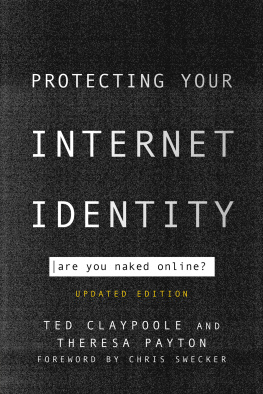

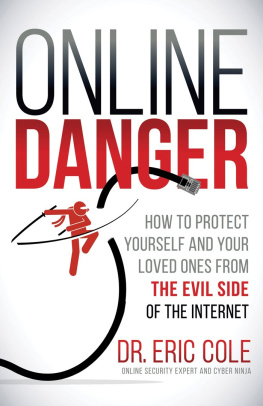
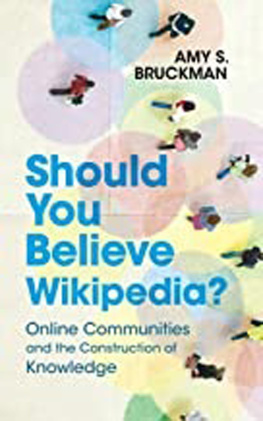
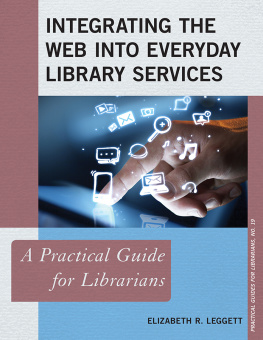

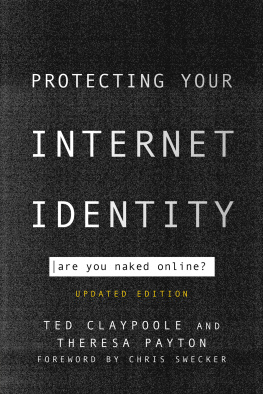
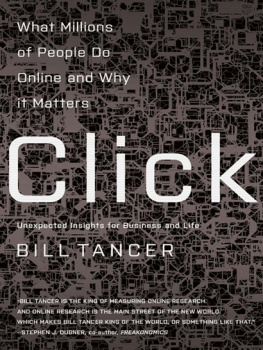
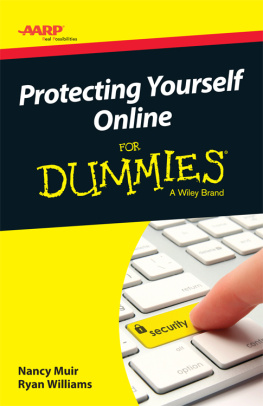
 The paper used in this publication meets the minimum requirements of American National Standard for Information SciencesPermanence of Paper for Printed Library Materials, ANSI/NISO Z39.48-1992.
The paper used in this publication meets the minimum requirements of American National Standard for Information SciencesPermanence of Paper for Printed Library Materials, ANSI/NISO Z39.48-1992.